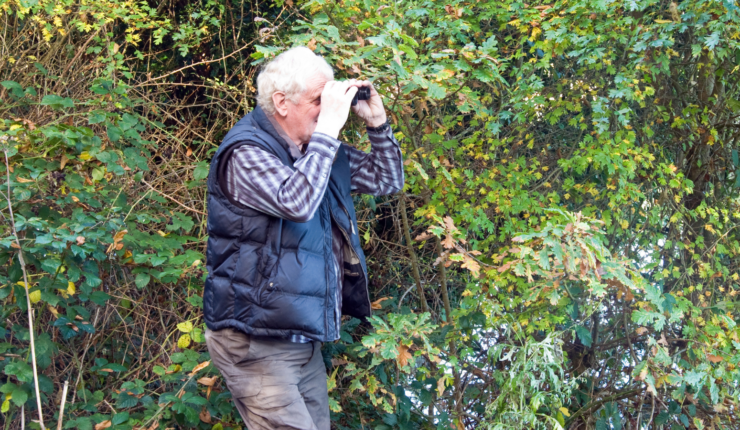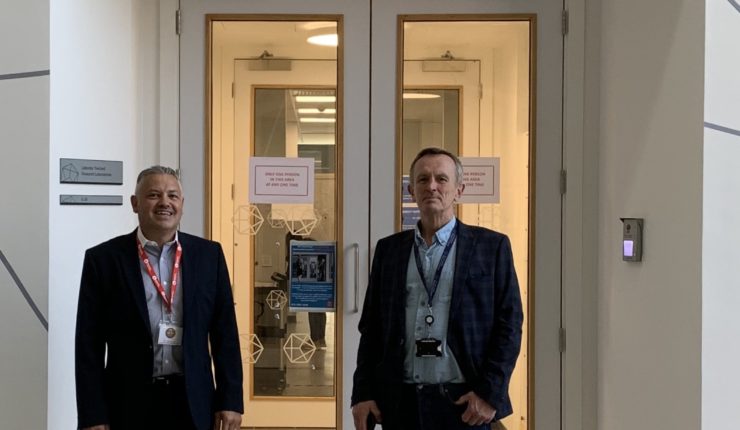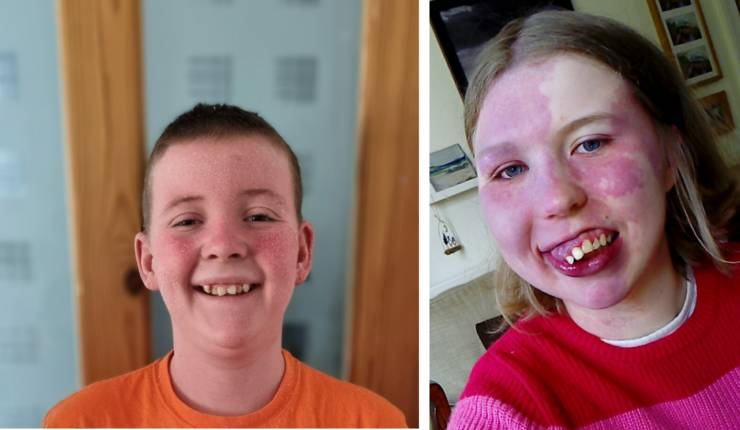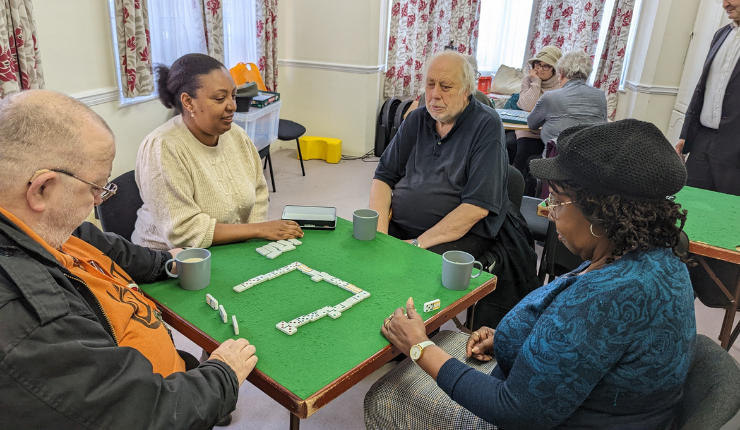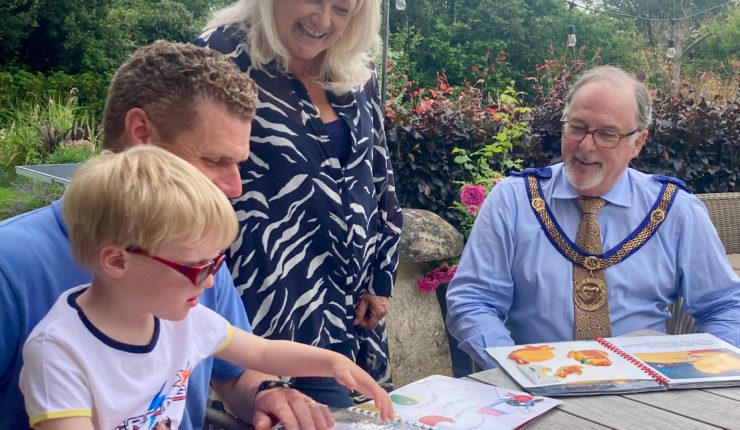Dementia, Grants to charities, Later life
Freemasons making a difference to people living with dementia
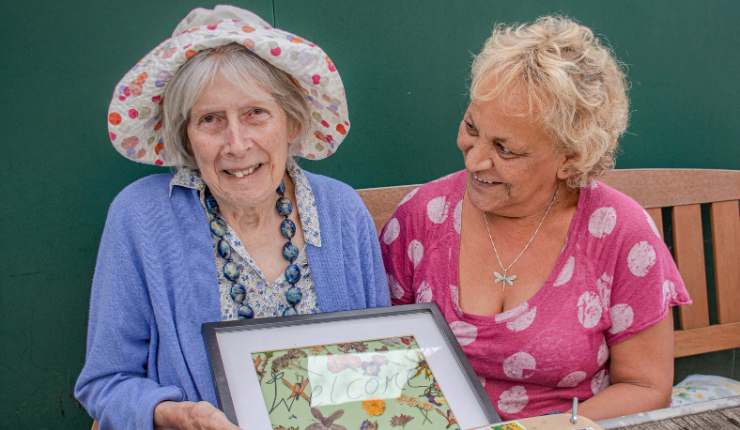
Taken at one of Alive Activities’ community allotments
There are currently around 900,000 people affected by dementia in the UK, and this is expected to increase by 16% by 2025. We spoke to some charities across the country, who have received our recent funding, to find out how they are helping to empower people affected by this condition.
This week is Dementia Awareness Week (15-21 May) with the focus this year being on getting a timely diagnosis and preventing crisis. Many barriers hinder individuals from seeking help, including the misconception that memory loss is ‘just a sign of getting older’, the denial, and concerns about the long wait times to see a specialist. However, 91% of people who have already received a diagnosis firmly advocate for the importance of knowing.
During the pandemic, greater isolation meant that 82% of dementia sufferers reported a decline in their condition. Research carried out by Age UK and Alzheimer’s Society found that COVID heightened memory loss, agitation, and problems with concentration.
With an aging population and dementia on the rise, we have focussed our charitable grants towards initiatives aimed at reducing loneliness and isolation in later life, offering many communities the assistance they need to foster connections and combat the challenges faced by older adults.
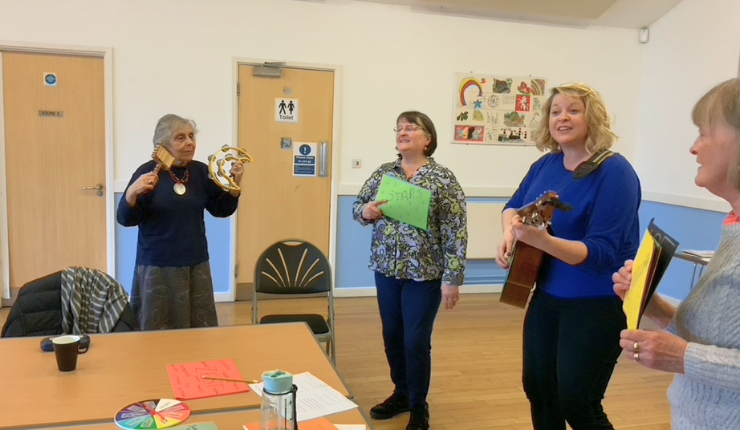
A Bright Shadow creative session
How has the MCF funding helped make a difference so far?
Trent Dementia is a Nottingham based charity aiming to reduce social isolation and offer social support through wellbeing activities. Our grant has helped to support an empowerment project which establishes peer support groups for people with dementia and their carers. Up until now, the funding has enabled them to prepare 600 individual activity packs for people living with a diagnosis and those that support them.
The support from MCF has been invaluable and has helped us to continue reaching out to people who are coping alone after a diagnosis.
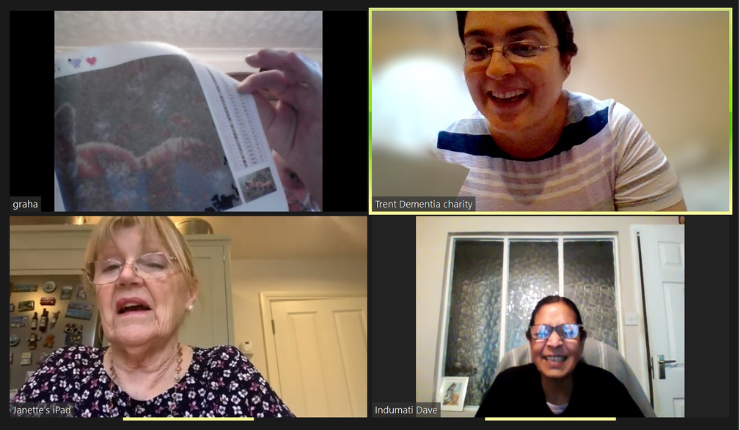
Trent Dementia support workers on a Zoom session with Graham
Bright Shadow uses the power of creativity to allow people diagnosed with, and affected by, dementia to live well and thrive. Our recent funding has helped support their weekly Zest sessions which inspire, promote communication skills and independence, and reduce loneliness.
Following Zest sessions, at least nine in 10 people with dementia report feeling positive, having meaningfully engaged in the activities they offer.
So far this year we have already provided 304 hours of short breaks for carers. Participants tell us that their Zest session is the highlight of their week… this all has a profound effect on people’s wellbeing.
Dementia Support’s Wayfinding service offers professional one-to-one support and advice sessions to individuals with dementia. Our grant will allow the organisation to employ another Wayfinder to provide appointments in community venues across West Sussex.
Alive Activities’ main goals are to engage older people creatively through meaningful activity, to train and support carers, to reduce social isolation by connecting people to local communities, and to speak up for the rights of older people to those with the power to improve their lives. Our grant will fully fund their dementia-friendly community allotment project for three years, enabling them to expand their facilitated sessions to two days a week.
The funding received from the MCF has already made a huge difference. Seeing the faces of our service users when we told them we would be able to keep going for 3 years was just wonderful. When you are told “this is where I feel happiest” and “Mum just comes to life here”, you know you are making a difference.
Link Age Southwark’s befriending service has benefitted around 250 older isolated people, thanks to our grant. Their primary focus is to provide opportunities for people living with dementia to develop community connections that alleviate loneliness, enhance wellbeing, and enable independent living in their own homes.
What is a common misconception about dementia?
The key point raised by the charities we spoke to was that dementia is an umbrella term for a variety of symptoms, although most commonly associated with memory issues. As it is a collective term for symptoms that occur due to damage to the brain caused by various diseases, people’s experience of dementia can also be varied.
The most common misconception is that people wrongly assume that once someone is diagnosed with dementia, their life is over. When in fact people with this diagnosis can live meaningfully and actively for many years, especially if they stay involved with their communities and build support networks.
It is also essential that people access programmes and services that support their quality of life. Being involved in community activities and keeping up with hobbies and trying something new can also really help. The more we support, the more people can thrive and live actively for as long as possible.
As a society I think we are slowly understanding this, but it will take time to change people’s perceptions, as the stereotype of a person with dementia is so ingrained.
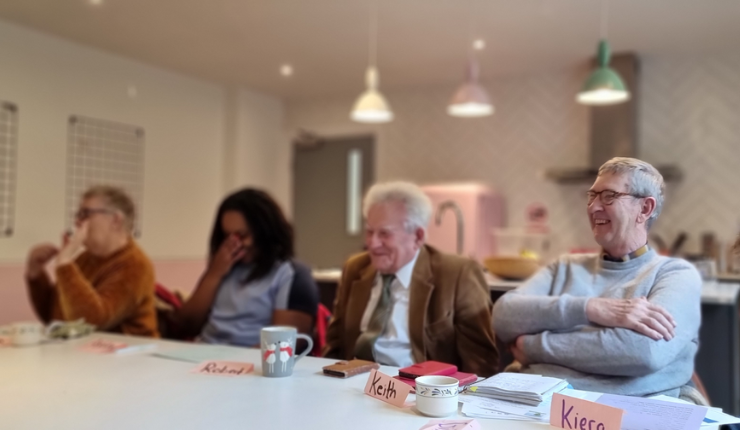
Attendees at a Bright Shadow Zest session
What is the most important thing to remember when supporting someone with dementia?
It is important to ask someone living with a diagnosis what would be helpful to them, rather than assuming you know what they need. It’s very common for people with dementia to be spoken for by others, so it’s vital to remember that the support offered should always put the person first. Communication is key, and someone living with dementia should be a part of the conversation.
The most important thing is to listen to people and keep listening, a one-off consultation is rarely helpful, we need to build and maintain relationships with people.
As human beings we all want to feel safe, have autonomy, and feel a sense of purpose and belonging. Without these basic needs being met we begin to feel distress, frustration, and hopelessness.
It is easy to do things for those who are living with dementia, as it might be done quicker, but it doesn’t matter. Someone who is living with dementia still needs a sense of achievement, so support them with tasks, but don’t do it for them.
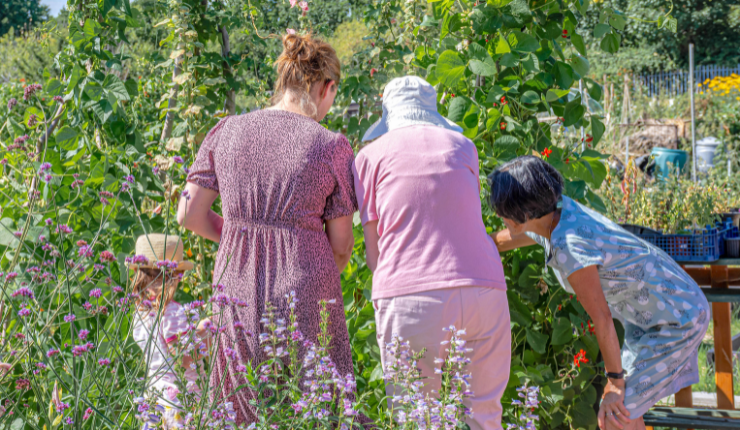
Alive Activities’ dementia-friendly community allotment
What directions are being explored for dementia support in the future?
The pandemic highlighted to a lot of charities the importance of adapting their programmes to reach across a wider geographic area whilst maintaining a personal touch. With dementia diagnoses on the rise, it’s going to be increasingly important to engage with isolated individuals across the community to help everyone access the support they want.
We want to collaborate with other organisations to share skills, and we hope this will lead to more ways for people to live fulfilling, supported lives.
We would like to reach more people across the East Midlands and offer them tailored support designed to empower them, helping them to access the support they want, that is not imposed on them.
We want to open more allotments and community gardens for people living with dementia. We have secured a site in another part of Bristol and can’t wait to be able to open up on the other side of the city.
